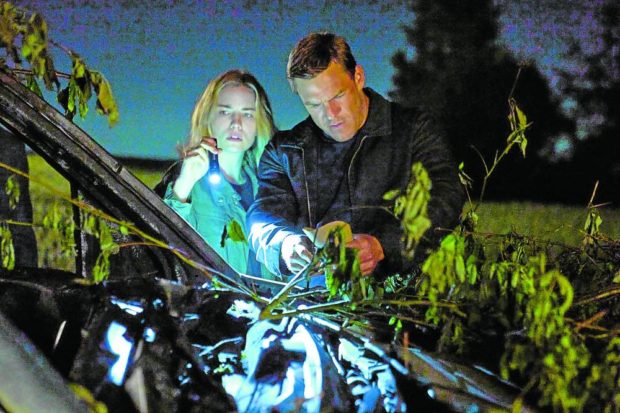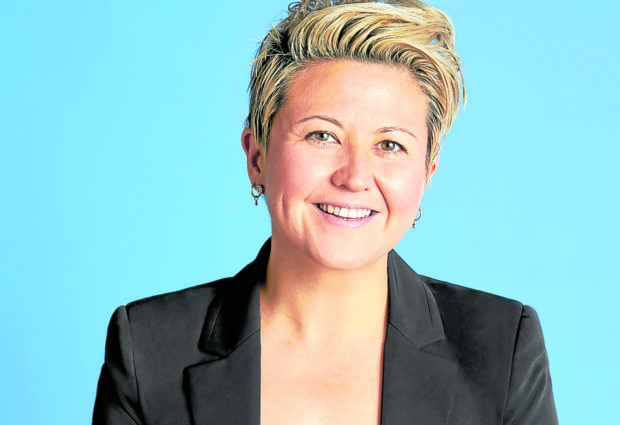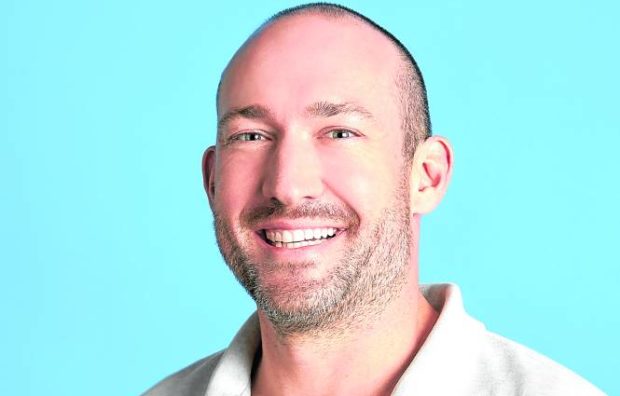Why Prime Video execs want to boost its streaming market in PH
We didn’t realize we’ve been watching so much content from Amazon Prime Video until we sat down with the streaming company’s visiting executives. Over breakfast at the Grand Hyatt Manila in Bonifacio Global City two weeks ago, we discussed with them the company’s current expansion programs in the Philippines, Thailand and Indonesia.
To name a few, the exceptionally diverse titles we’ve been binging include the deliciously irreverent superhero series “The Boys” (a personal favorite), the kickass actioner “Reacher,” the cocky comedy “Fleabag,” the dramatic thriller “The Night Manager,” the bright and breezy “Marvelous Mrs. Maisel,” the K-drama series “Love in Contract” and, of course, the world’s most expensive TV series “The Lord of the Rings: The Rings of Power,” which just wrapped up its Sauron-revealing pilot season last Friday.
With us in that morning chat were Joshua McIvor, director of International Expansion; Erika North, the Filipino-British head of Asia-Pacific Originals at Amazon Studios; as well as Communications and PR director Tobias Tringali.
Given the fact that streaming platforms are a dime a dozen these days, we asked the team what they thought set Prime Video apart from the rest of the increasingly overcrowded pack.
“Well, we’ve been around for a while. In fact, we launched in the US about 10 years ago,” Josh stated. “But you’re quite right in saying that we really just started our local efforts here in the Philippines last summer.
“To answer your question, it really comes down to a handful of things, but of all of them, the most important is our commitment to local content. While we have a fantastic global catalog of shows, our goal is to be the ‘most local’ of the global streaming services. Our goal is to help local stories become enormously successful everywhere.
Local storytelling
“This year, we bought MGM Studios, which means we’ll also be adding the James Bond titles to our global content—and that will help us truly compete with any world catalog. And what will differentiate us even more is our long-term commitment to local storytelling.”
While they’re not at liberty to divulge how many local subscribers they have at the moment, Josh pointed out that expanding Prime Video’s visibility and reach into the Filipino and Southeast Asian markets can only boost its global subscriber base.
“We don’t give specific numbers,” he said. “But we did announce this year that we have over 200 million Prime customers—and that was before we even got started here. And one of the numbers we’re very proud of is that on the first day ‘The Rings of Power’ was released, 25 million viewers tuned in worldwide.”
Chiming in, Erika added, “And that’s from 240 countries around the world.”
The manner of delivery has also synchronized the way people consume content, Erika noted: “The simultaneous global distribution on the platform has changed the game for content consumers and creators. It means that we have basic fans around the world who can take part in the same conversation at the same time. There’s never been a better time to be a creator or consumer, and the ‘Rings of Power’ is a great example of that.”
Don’t they see anything cautionary about Netflix’s subscriber loss in the first quarter—around 200 thousand—and even more in the second quarter (reportedly around 970,000)? Do those numbers inform or affect Prime Video’s expansion projects?
“Not really,” Josh said. “To be honest, we don’t spend too much time looking at our competitors. We spend much more time figuring out what our customers want. Our commitment to international markets is long-term. As with any business, the numbers go up and down.
“But we look at what we want to achieve over a 10-year-plus time frame, so it hasn’t really impacted us at all. It just makes us more committed because [the international market] is where a lot of the subscriber growth is going to come from in the foreseeable future.
“As to your question about how we intend to remain competitive, it does come back to our ‘local first’ approach. And to that, my example is India. We were definitely not the first streaming service there. In fact, we were many years behind other services. But because we focused on customers and great local storytelling, we quickly became one of the largest in the country.
“Our customers tell us what they want. We have so many touch points with them because we have all the data on viewership. And we spend a disproportionate amount of time trying to figure out what they want, and that informs our strategy so much.”
“We also make sure that we’re widely distributed on all the devices that are used here in Southeast Asia. And then, there’s local marketing, like the campaign that was launched by Anne Curtis.”
Erika added, “There’s greater propensity to put content that can be consumed outside of your home language, since subtitles are no longer a barrier these days.
Potential to travel
“This may sound like a paradox, but the more grounded and authentic a story is, the greater its potential to travel. And we’ve seen this time and again in content out of India, Japan, Mexico, France and Germany. Consistency will only help drive content consumption around the world.”
What’s driving the interest for content for Southeast Asia?
“There’s content that can travel to every corner of the world, then there’s content that doesn’t travel as much,” Josh explained. “But there are a lot of commonalities. Every region has its own differences in terms of what people watch or how they watch and pay for it. We’re just trying to make sure that we’re putting all those pieces together so that it makes sense for every consumer.”
Erika added, “When we think about Southeast Asia, it’s easy to think of it as a singular umbrella. It’s a multitude of cultures and textures and histories and voices but, as Josh also pointed out, it has several commonalities. The region also has ostensibly young economies gearing up for growth. There’s propensity to watch on mobile. There are distinctive entertainment ecosystems and functions for each country.”
Speaking of unique content, what sets “The Lord of the Rings” series significant was its decision to cast relatively new but exceptional actors in many of the principal roles. Was that deliberate?
“Yeah, it was a conscious decision,” Josh said. “We wanted to ensure that the roles were being portrayed by actors who we felt best epitomized those characters, rather than try to squeeze a famous name into them. We have the money for the famous names, but we decided to cast according to how the story is best served.”
Erika reiterated, “This is where the intersection between entertainment consumption and fandom and social media comes in. We want to be at the forefront of creating new stars and giving them new opportunities.”
Crown jewels
“The Lord of the Rings” is without a doubt one of Prime Video’s crown jewels. What other titles are very popular on the platform?
Tobias answered, “The first ones that immediately come to mind are ‘The Boys’ and ‘The Wheel of Time.’ Another one is ‘Reacher.’”
In terms of content creation, is there a specific group of creators they want to tap into? And what genre do they want to focus on?
“That’s a great question,” said Erika. “When we’re looking at content creation, specifically, we work across the entire ecosystem. So within studios, we produce content within three main categories: scripted TV, unscripted TV and film.
“More broadly, when we’re thinking about content licensing and production, or collaborating with partners on the entire value chain, we’re really interested in working with partners on a multitude of genres—like action, horror, thriller, sci-fi, etc.
“When you intersect the audience’s love for those shores with the categories that we operate in, it opens up so many avenues for different storytelling. And when we think about the kind of partners we want to work with, they really fall into two categories: Existing talent who possesses a real sense of the story and new talent. We want to help them architect the next phase or chapter in their evolution.
“And if we’re going to be fostering this growth in our ecosystem, it has to be for the long haul. Productions don’t come together in a short space of time with only a handful of people. It takes a big commitment from a community, and we want to be seen as trusted partners in that entertainment ecosystem. We want to be there across the board.”
Asked what sort of image he wishes Prime Video to have among their subscribers, Josh was quick to reply, “We want viewers to hopefully think of us as the service that most listens to them … about what content they want to consume and what else they want to see. That’s our hope.” INQ





